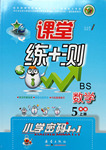12.People are more likely to lie or cheat during the afternoon because self control reduces during the day,according to researchers.
Volunteers taking part in two experiments where they could benefit by cheating were more likely to do so if the tests took place after midday,researchers found.
The findings back up previous studies which have shown that our capacity for self-control declines during the day,due to tiredness and repeatedly making decisions.
Psychologists from Harvard University first showed a group of volunteers various patterns of dots on a computer screen,asking them to decide whether there were more dots on the left or the right hand side.
Instead of being rewarded for getting the answer right,the participants were paid based on which side they chose,earning ten times as much for choosing the right hand side as the left.
People who were tested after midday were significantly more likely to select the right hand side,even if there were clearly more dots on the left,than those who took part during the morning.
In a second test,participants were shown a series of word fragments,such as"-ral"and"e-c-"and asked which words they associated with them.
In morning experiments,participants were more likely to form the words"moral"and"ethical"while during the afternoon the words"coral"and"effects"were most common.
Further tests conducted online showed that people were more likely to send dishonest messages or claim to have solved an unsolvable problem in the afternoon than in the morning.
Writing the Psychological Science journal,the researchers said the difference was particularly pronounced in people with higher ethical standards,who always behaved morally during the morning but slipped during the afternoon.
In contrast,those who were able to"morally disengage",or behave unethically without feeling guilty,tended to cheat whatever the time of day.
Dr.Maryam Kouchaki,one of the lead authors,said:"Unfortunately,the most honest people,such as those less likely to morally disengage,may be the most susceptible (易受影响的) to the negative consequences associated with the morning morality effect."
The findings could be relevant to organizations that should be more alert about the behavior of customers and employees during the afternoon,she added."Our findings suggest that mere time of day can lead to a systematic failure of good people to act morally."
74.Volunteers can get more money when theyB
A.gave the correct answer B.chose the right hand side
C.chose the left hand side D.remembered the patterns of dots
75.Why are participants less likely to form words like"ethical","moral"in the afternoon?D
A.Because their vocabulary becomes smaller.
B.Because they are unwilling to tell the truth.
C.Because the words are the voice of their heart.
D.Because self control declines after midday.
76.The underlined word"pronounced"( in paragraph 10 ) is closest in meaning toC
A.dominated B.announced C.marked D.exposed
77.Which of the following statements is TRUE?A
A.The finding especially applies to those who behave ethically.
B.Mere time of day can lead to systematic failure of organizations.
C.The finding doesn't agree with that of previous studies.
D.People who act morally feel guilty after telling a lie.
分析 研究发现,人们在下午的时候更倾向于撒谎或作弊,因为在白天里人的自控能力会逐渐减弱.下文列举的几项实验结果证明了这个结论,其中一项实验就是让参与者根据给出的字母联想单词,最终结果表明参与者在早上倾向于拼写出 ethical、moral 等带有道德色彩的单词,而在下午则没有这种表现,这就是由于参与者的自控能力逐渐减弱.
解答 74:B 细节题.由第五段"the participants were paid based on which side they chose,earning ten times as much for choosing the right hand side as the left."可知,选择右手边图象的志愿者能得到更多钱,故正确答案为B.
75:D 推断题.由第一段"People are more likely to lie or cheat during the afternoon because self control reduces during the day"并结合全文可知,该句表达了全文主旨,即研究发现,人们在下午的时候更倾向于撒谎或作弊,因为在白天里人的自控能力会逐渐减弱.下文列举的几项实验结果证明了这个结论,其中一项实验就是让参与者根据给出的字母联想单词,最终结果表明参与者在早上倾向于拼写出 ethical、moral 等带有道德色彩的单词,而在下午则没有这种表现,这就是由于参与者的自控能力逐渐减弱.故正确答案为D.
76:C 推断题.首先定位到第十段"the difference was particularly pronounced in people with higher ethical standards",由下一段段首"In contrast"可知这两段存在转折对比关系,而第十一段说明了对于那些根本没有道德意识的人无论在一天中的哪个时段都倾向于欺骗,据此可推测第十段主要说明对于那些有着较高道德标准的人,在早上表现得非常有道德而在下午道德感逐渐减弱的这种差异非常显著(pronounced).四个选项中只有 marked 可表达"显著的"之意.A项"占主导地位的;强势的",B项"宣布的",D项"暴露的",均不符合文意.故正确答案为C.
77:A 推断题.由第十段"the difference was particularly pronounced in people with higher ethical standards,who always behaved morally during the morning but slipped during the afternoon."可知,对于那些有着较高道德标准的人,在早上表现得非常有道德而在下午道德感逐渐减弱的这种差异非常显著;又由第十一段"those who were able to'morally disengage'…tended to cheat whatever the time of day."可知,对于那些根本没有道德意识的人无论在一天中的哪个时段都倾向于欺骗.综上可知,这项发现对于那些表现得很道德的人来说尤其适用.故正确答案为A.
点评 1、要想做好科普英语阅读理解题,同学们就要注意平时多读科普知识类文章,学习科普知识,积累常见的科普词汇,从根本上提高科普英语的阅读能力.
2、要熟悉科普类文章的结构特点.科普类文章一般由标题(Head line),导语(Introduction),背景(Back ground),主体(Main body)和结尾(End)五部分构成.标题是文章中心思想高度而又精辟的概括,但根据历年的高考情况来看,这类阅读理解材料一般不给标题,而要同学们选择标题.导语一般位于整篇文章的首段.背景交待一个事实的起因.主体则对导语概括的事实进行详细叙述,这一部分命题往往最多,因此,阅读时,同学们要把这部分作为重点.结尾往往也是中心思想的概括,并与导语相呼应,命题者常在此要设计一道推理判断题.
3、在进行推理判断时,同学们一定要以阅读材料所提供的科学事实为依据,同时所得出的结论还应符合基本的科普常识.



 课堂练加测系列答案
课堂练加测系列答案 轻松课堂单元测试AB卷系列答案
轻松课堂单元测试AB卷系列答案